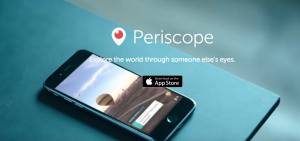The Periscope effect on the Pacquiao-Mayweather fight
WASHINGTON–The boxing match billed as the fight of the century is over, but the battle over smartphone video streaming of the Las Vegas showdown is just beginning.
Revelations that dozens of smartphone users streamed the Manny Pacquiao-Floyd Mayweather weekend fight have raised questions about how new technologies can get around copyright restrictions imposed at live venues such as sporting events and concerts.
READ: The pay-per-view phenomenon in boxing
There are no reliable figures, but thousands of people may have watched the fight via the Twitter-owned app Periscope, which allows any smartphone user to “broadcast” live video, and independent app Meerkat.
These viewers avoided the $100 fee for official pay-per-view video — as long as they did not mind reduced picture quality.
Twitter chief executive Dick Costolo appeared to boast about the feat when he tweeted at the end of the match, “And the winner is… @periscopeco.”
It highlights the conundrum copyright holders could face if they lose control of their rights to fans with smartphone apps.
Similar questions arose last month when HBO sent notices to Periscope over piracy of its “Game of Thrones” series. And these issues are expected to multiply as smartphone streaming gains popularity.
Acting ‘expeditiously’
Under US copyright law, tech firms have a responsibility to remove copyrighted content “expeditiously” when notified of a violation. But at a live event, it’s not clear how fast is fast enough.
“The law really does not have the tools for copyright owners to go after platforms that have content that is live streamed,” said Bradley Shear, a Washington-area attorney specializing in social media and copyright issues.
The debate over these streaming apps “is going to restart the conversation about copyright protection in the digital age,” Shear told AFP.
Periscope and Meerkat say in their terms of service that they do not allow streaming of copyrighted content. But because there is no clear definition of “expeditious” the law may have been rendered useless by technology, according to Shear.
“This demonstrates the need to revisit our copyright law,” he said.
Eric Goldman, co-director of the High-Tech Law Institute at Santa Clara University, agreed that when Congress wrote the Digital Millennium Copyright Act in 1998, “it did not contemplate live streaming.”
Goldman noted that copyright holders could in theory sue those who carry out the streaming, the viewers and the platforms such as Twitter.
But such litigation is unlikely after the fact, especially since the law allows tech firms “safe harbor” protections if they respond to takedown requests.
Goldman said some technology firms have gone beyond the law to help copyright owners, by setting up filters and using other means to block illegal videos or at least prevent them from being discovered in a search.
‘We were ready’
Periscope founder Kayvon Beykpour said at the TechCrunch Disrupt conference Tuesday that his team was “completely prepared” for the welterweight mega-fight, with a team of people scanning for emails about potential problems.
“We had 66 requests for takedown and we took down 30 of them, all in a matter of minutes,” Beykpour said. The others could not be removed, he said, because they had ended by the time the team could deal with them.
“We were ready, we knew we had to be well-staffed,” he said.
On the broader question, Beykpour said the issue of copyright infringement is overblown because of the relatively poor quality of video on these feeds.
“No one wants to watch ‘Game of Thrones’ on Periscope,” he said.
READ: ‘Game of Thrones’ hit by piracy from Twitter-owned app users
HBO and Showtime, which managed pay-per-view television for the Pacquiao-Mayweather clash, declined to comment.
But sources familiar with the matter said the newer platforms like Periscope lack the systems adopted by YouTube and others where copyright owners are allowed to log in as special users and instantly remove content.
That means each request must be managed individually, which can often mean action is taken too late.
Fight promoter Top Rank meanwhile said it takes the issue seriously and is considering legal action.
“We are always pursuing, watching out for piracy,” Top Rank president Todd duBoef said.
“We think anyone redistributing unauthorized streaming is cheating. They don’t have the right to distribute. We want a thorough report on how many streams are out there.”
